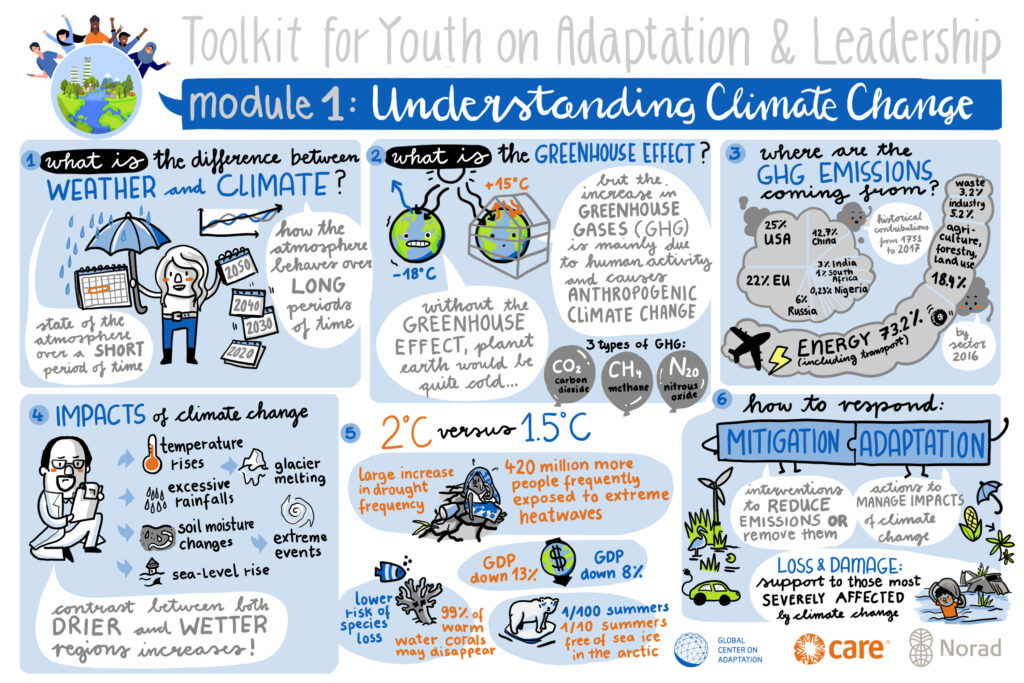The Impact of Climate Change: An Urgent Call for Action
Human activities have significantly accelerated the rise in global temperatures, posing serious threats to both humanity and natural ecosystems. Experts warn that while conditions may worsen in the future, immediate and decisive action can mitigate the most severe outcomes of climate change.
Understanding Climate Change
Climate change refers to long-term alterations in the planet’s average temperature and weather patterns. Over the last century, the world has experienced rapid warming, leading to significant changes in climatic occurrences. According to the European Copernicus Climate Service, global temperatures from 2015 to 2024 were, on average, approximately 1.28°C warmer than those recorded in the late 19th century. Since the 1980s, each consecutive decade has been warmer than its predecessor, with 2024 recorded as the hottest year globally, largely attributed to climate change.
Human Contributions to Climate Change
While climate change has occurred naturally throughout Earth’s history, it is the recent, rapid increase in temperatures that cannot be solely attributed to natural factors, according to the UN’s Intergovernmental Panel on Climate Change (IPCC). The primary driver of this accelerated warming is human activity, particularly the combustion of fossil fuels like coal, oil, and gas in various sectors, including residential, industrial, and transportation. Burning these fuels releases greenhouse gases, primarily carbon dioxide (CO2), which create a heat-trapping blanket in the atmosphere, causing global temperatures to rise. Since the Industrial Revolution, atmospheric CO2 levels have surged by about 50%, far exceeding typical historical levels.
Visible Effects of Climate Change
The repercussions of climate change are already visible in significant environmental changes, including:
- Increased frequency and severity of extreme weather events such as heatwaves and heavy rainfall.
- Accelerated melting of glaciers and ice sheets, leading to rising sea levels.
- Significant loss of Arctic sea ice.
- Warmer ocean temperatures, contributing to the intensity of storms and damage to marine ecosystems like coral reefs.
These environmental shifts have serious ramifications for communities globally, as evidenced by two powerful hurricanes that struck the US in late 2024, expected to cost over $100 billion total and resulting in significant loss of life. Recent droughts in East Africa have also highlighted the severe threat climate change poses, affecting millions and increasing the risk of food scarcity.
Why the 1.5°C Threshold Matters
The urgency to limit average global temperature increases to 1.5°C has been underscored by a critical international agreement reached in 2015 during the Paris Climate Accord. This threshold is understood to refer to long-term averages over a 20-year span, rather than fluctuations in any single year. The UN warns that exceeding this limit could intensify climate change impacts dramatically.
| Impact | At 1.5°C | At 2°C |
|---|---|---|
| Average temperature rise in mid-latitudes | 3°C | 4°C |
| Sea-level rise | Baseline | 0.1m higher, affecting oceanfront populations |
| Coral reef loss | 70-90% | Over 99% |
Future Challenges and Collective Responsibility
With approximately 3.3 billion people being highly vulnerable to the impacts of climate change, particularly in less developed nations, the disparity in responsibility for emissions raises ethical concerns. Despite being the least responsible for greenhouse gas emissions, these nations often suffer the most severe impacts.
Steps Toward Mitigation
In order to keep global warming within the agreed 1.5°C limit, global CO2 emissions must reach net-zero by 2050. Most countries have set or are contemplating net-zero targets. However, emissions are still rising swiftly, and researchers estimate that the world could exceed the 1.5°C threshold. Key developments include growth in renewable energy sources and electric vehicles.
Personal Actions Matter
While substantial change requires systemic action from governments and industries, individual actions can play a role in mitigating climate change. Simple lifestyle changes such as minimizing air travel, enhancing energy efficiency in homes, adopting electric vehicles, and reducing meat consumption can collectively contribute to climate action.


